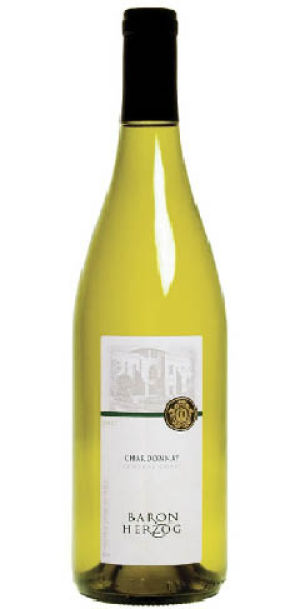A few years ago, “kosher” wine meant syrupy and sweet. Then later when I realized that there were varietal kosher wines such as chardonnay and cabernet sauvignon, I mentally filed them into a category that I could ignore. Now I am enlightened. But before discussing good, locally available kosher wines, I need to describe three special terms that you can find on the back labels of those wines: kosher, mevushal and “kosher for Passover.”
Kosher wine must be made in accordance with Jewish dietary laws but does not represent a style of winemaking and has no effect on its taste. Because any grapes can be used, more than 400 kosher wines are available from around the world, including many from Argentina, Australia, New York, California, France, Israel and Italy.
To be kosher, several special rules must be followed during its production. Equipment used during the process must be used exclusively for producing the wine, only certified kosher products may be used in processing, and stringent filtration procedures must be followed. Also, from grape crushing to the sealing of the bottle, only Sabbath-observant Jews (those who observe kosher dietary laws) may physically handle the grapes, production equipment and wine. Entrance to the wine production area for anyone else is forbidden.
Mevushal (the Hebrew word for cooked or boiled) is actually a classification of kosher wine. But why boil wine? The practice apparently evolved from an ancient pagan belief that boiled wine was unfit for pagan ceremonies. Jews would therefore boil the wine they produced for their own ceremonies to keep it from being used in the ceremonies of “idol worshippers.” Now isn’t that a great wine trivia question?
Thankfully, modern techniques have done away with haphazard boiling. The modern procedure of making wine is flash pasteurization. The must, which is simply the crushed grapes or grape juice ready for fermentation, is quickly heated and then rapidly cooled. The rest of the fermentation and winemaking process then progresses as it would for non-kosher wine.
Fortunately, the process does not seem to alter the wine’s quality. You can taste the wines and decide for yourself, but a study at the University of California at Davis concluded that it is impossible to taste the difference between identical wines that differ only because of the added pasteurization process.
Why boil wine today? Non-mevushal wine loses its kosherness when opened and poured by a non-Jew. The pasteurized wine retains its kosher status, even if it is touched by non-Jewish hands. Mevushal wines are especially handy for events where the catering staff may not be Jewish.
The final classification that normally is displayed on the label of a kosher wine is “Wine for Passover.” The qualification for this category prevents the addition of certain sweetening agents that are normally used in concord-based wines, including standard Manischewitz wines. For that reason, Manischewitz produces a special wine for Passover that simply uses acceptable sweetening agents. The labels on the wine bottle need to be carefully inspected to differentiate these two because there is a small designation on the front label; otherwise, they appear identical. Fortunately, other than concord grape wines, most mevushal wines are also Passover wines because they do not require the addition of sweetening agents. Speaking about Manischewitz, why is this viewed by so many as the traditional kosher wine in the United States? History tells the story.
The concord grape was the only variety that was available for Jewish immigrants arriving in the New York area. It is an acidic table grape that is normally balanced with sugar and is used for Manischewitz and other similar wines. As time passed, the sweetened concord wine became such a tradition that important wine educators defined sweet red table wines that have a concord aroma as a “kosher-type” wine.
Are quality kosher wines that are produced from varieties — such as cabernet sauvignon and chardonnay — available? Fortunately, the answer is yes, but usually only a small selection is stocked by retailers. Join me and enjoy kosher wines as an everyday choice.
Dee Hitch can be reached at rockypointlane@aol.com.
Kosher Wines Available Locally
All the wines I describe are mevushal, kosher for Passover and are available locally. The kosher classification information is found on the wines’ back label.
Bartenura moscato Italy ($15)
A delightful Italian fruity white wine made from the Moscato grape. It is fun to drink because it is spritzy and has the flavors of peach and apricot. Good by itself, it would be nice with chicken dishes and desserts. Better yet, it is very low in alcohol (five percent vs. 13 percent for most wines), which is wonderful because several glasses can be sipped without much concern about drinking too much. This is consistently my favorite kosher wine.
Baron Herzog zinfandel Lodi Calif. ($12)
This is my favorite kosher red wine. It has the spicy aromas and layers of berry that are characteristic of above average zinfandels. It has the nice acidity that is important when paired with full-flavored dishes.
Baron Herzog chardonnay Central Coast Calif. ($12)
A favorite kosher chardonnay of mine. This wine is fresh and clean with aromas of apple and light oak. It has a long finish and is a good example of a central coast chardonnay.
Baron Herzog cabernet sauvignon Calif. ($12)
This is a medium bodied cabernet sauvignon with aromas of blackberry and a touch of oak with a pleasant finish. Pair it with beef.
Recanati cabernet sauvignon Galilee: Israel ($15)
This is my favorite of the Recanati wines because of its complexity and interesting hints of spices.
Recanati merlot Galilee: Israel ($15)
Soft, pleasant, round merlot but not a match for Washington merlots.
Recanati chardonnay Galilee: Israel ($15)
Barrel fermented and aged on the lees.
Herzog chenin blanc California ($8)
Chenin blanc is a refreshing white and complements appetizers and fish.



